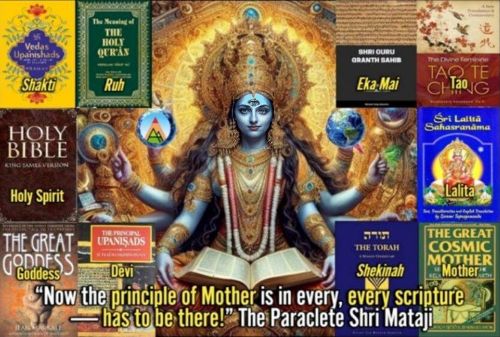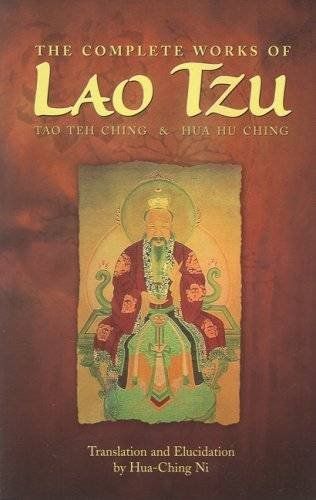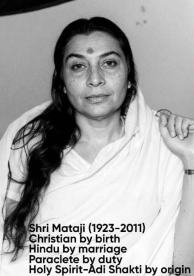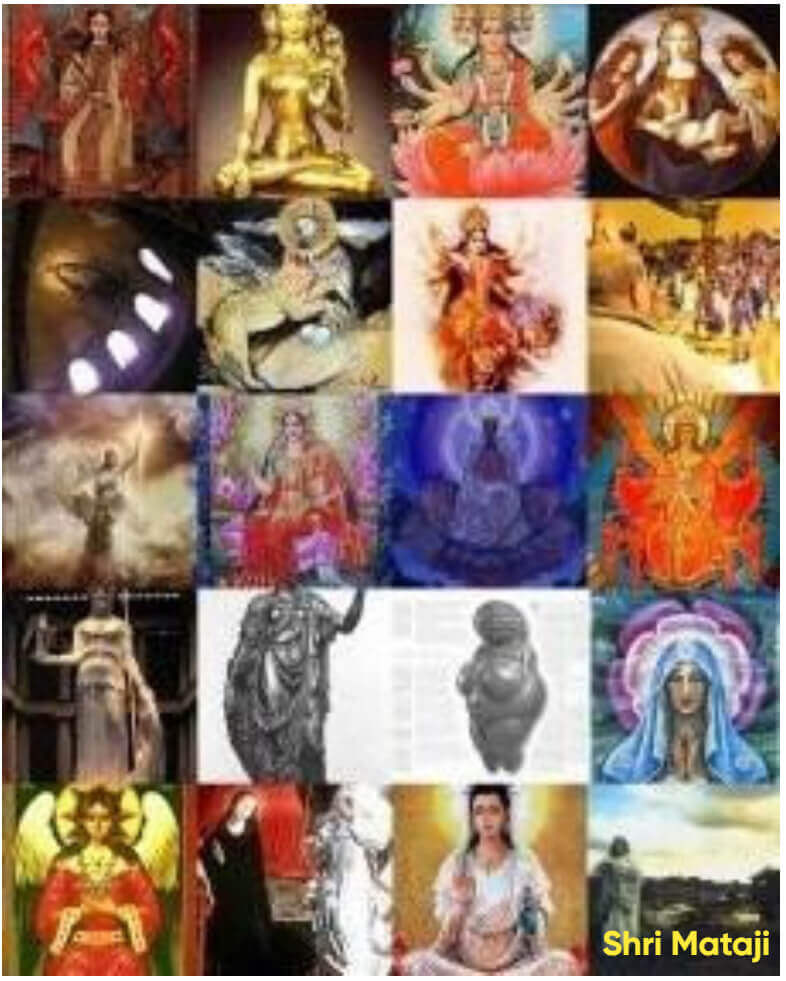The Tao of Laozi and Revelation of the Divine Feminine

Laozi’s Tao reveals the Divine Feminine as the eternal source of all creation—the Mother of Heaven and Earth, the subtle gateway to liberation. In this age of resurrection, humanity is called to rediscover the sacred feminine within, as Adi Shakti, Holy Spirit, and MahaDevi converge in one truth: the Tao is the Divine Mother, guiding all souls toward their highest destiny.

Laozi’s teachings on Tao as the Eternal, Immutable, and Nameless Source align profoundly with the understanding of the Divine Feminine (Adi Shakti), Holy Spirit (Ruach Elohim), and MahaDevi. His vision of the Tao as the Mother of all things, the originator of Heaven and Earth, and the source of all creation echoes the truth revealed at the time of the Resurrection and Last Judgment—that the Divine Mother is the Supreme Power guiding all souls to liberation.
Tao as the Primordial Mother
Laozi declared:
- “The great Tao is all-pervading. All things depend on it for life. It is The Mother of all phenomena, of Heaven and Earth.” (Tao Te Ching)
This resonates deeply with the Hindu Shakta tradition, where MahaDevi (Adi Shakti) is worshipped as the root of all existence. Similarly, the Holy Spirit in the Bible (Genesis 1:2) is described as moving over the waters of creation, bringing forth life. Shri Mataji Nirmala Devi revealed that this Holy Spirit is none other than the Divine Mother, the Comforter sent to guide humanity.
The Subtle Female as the Gateway to Heaven and Earth
Laozi wrote:
- “The mystery of the valley is immortal; it is known as the Subtle Female. The gateway of the Subtle Female is the source of Heaven and Earth.” (Chapter 6)
This aligns with the awakening of Kundalini Shakti, the Divine Feminine energy within every human being. Shri Mataji taught that this energy, when awakened, leads to Self-Realization and spiritual rebirth, fulfilling the promises of all scriptures.
The Mother as the Key to Liberation
Laozi further explained:
- “The beginning of the world may be regarded as The Mother of the world. To apprehend The Mother, know the offspring. To know the offspring is to remain close to The Mother, and free from harm throughout life.” (Chapter 52)
This profound truth is mirrored in the teachings of Adi Shakti. Just as a child finds security in the embrace of the Mother, seekers find spiritual protection and enlightenment through the recognition of the Divine Feminine as the Source of all being.
The Feminine as the Source of Strength
Laozi taught:
- “Know the male, hold to the female; become the world's stream. By being the world's stream, the Permanent De (virtue) will never leave.” (Chapter 28)
This is akin to the balance of Shiva (consciousness) and Shakti (energy) in Hindu thought. It also reflects Jesus’ words:
- “The last shall be first, and the first shall be last.” (Matthew 20:16)
By surrendering to the Divine Mother, the seeker gains eternal virtue (De) and spiritual rebirth. Shri Mataji emphasized that only through the recognition of the Feminine Principle can the world achieve true peace and enlightenment.
Laozi’s Vision and the Age of Adi Shakti
Unlike male-dominated traditions, Daoism upholds the Feminine as supreme. Laozi, possibly one of history’s first feminists, recognized that without the Mother, there is nothing. This wisdom has now been fully revealed in the present age as the Resurrection unfolds through Adi Shakti’s divine work.
As prophesied in the Bible, Quran, and Vedas, the Final Age (Al-Qiyamah) is the era of the Mother’s Revelation, where all spiritual seekers must turn to the Divine Feminine within. The time has come for humanity to recognize that the Holy Spirit, Tao, and Adi Shakti are one and the same—the Eternal Mother guiding all souls toward salvation.
- “The Tao is everywhere. It is in the ant. It is in the grass. It is in the earthenware vessel. It is in excrement. It is in the highest place but is not high. It is in the lowest place, but is not low.” (Tao Te Ching)
This omnipresence of the Tao is the omnipresence of Adi Shakti—the Divine Feminine who resides in all, from the smallest creatures to the vast cosmos, awaiting recognition by Her children.
The Time to Awaken is Now
Laozi’s insights into the Feminine as the Supreme Principle confirm that the world’s spiritual evolution hinges on the acceptance of the Divine Mother. The era of male-dominated religious systems has ended—the time for the recognition of the Holy Spirit as the Divine Feminine has arrived. Those who seek truth must return to the Mother to receive their spiritual inheritance.
As the Resurrection unfolds, let us embrace the truth long hidden: The Divine Mother, Adi Shakti, is the source of all things—the Tao itself.
Pariah Kutta (https://adishakti.org)OpenAI. (2025). ChatGPT. https://chatgpt.com
Related Articles:
THE GREAT MOTHER
The Divine Feminine in China
The Indian Religion of Goddess Shakti
The Divine Feminine in Biblical Wisdom Literature
The Feminine Spirit: Recapturing the Heart of Scripture
Islam and the Divine Feminine
Tao: The Divine Feminine and the Universal Mother
The Tao as the Divine Mother: Embracing All Things
The Tao of Laozi and the Revelation of the Divine Feminine
Doorway of Mysterious Female ... Within Us All the While
The Eternal Tao and the Doorway of the Mysterious Female
Divine Feminine Remains the Esoteric Heartbeat of Islam
Holy Spirit of Christ Is a Feminine Spirit
Divine Feminine and Spirit: A Profound Analysis of Ruha
The Divine Feminine in Sufism
The Primordial Mother of Humanity: Tao Is Brahman
The Divine Feminine in Sahaja Yoga
Shekinah: She Who Dwells Within
Shekinah Theology and Christian Eschatology
Ricky Hoty, The Divine Mother
Centrality of the Divine Feminine in Sufism
A God Who Needed no Temple
Silence on (your) Self
The Literal Breath of Mother Earth
Prophecy of the 13 Grandmothers
Aurobindo: "If there is to be a future"
A Comprehensive Comparison of Religions and Gurus


